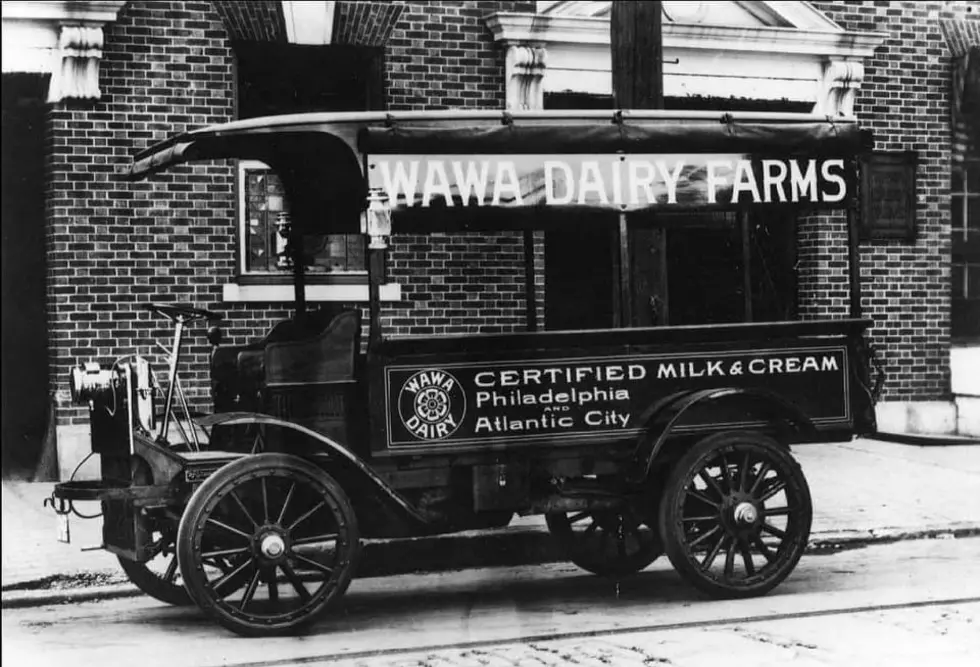
Years Before Stonewall, Jersey’s Gay Bars Fought the Law and Won
How can you tell if someone is homosexual?
For a Superior Court judge sitting in Ocean County in 1957, it was easy.
“It is in the plumage that you recognize the bird,” he explained in a case against Paddock Bar in Atlantic City.
For years in the Garden State, that quacks like a duck, walks like a duck test was the standard by which police, inspectors and judges punished bars frequented by people who might have stood under the LGBTQ umbrella.
While sodomy was against the law in much of the country — and often used to prosecute gay people — it was not against the law to be gay or lesbian in New Jersey. But it was forbidden, however, for bars and restaurants with liquor licenses to allow gays, lesbians, cross-dressers and the like to "congregate" — a rule that did not apply to other establishments like theaters and cafes. The state’s liquor regulators called gay bars a public “nuisance” and “inimicable to public morals,” and they occasionally suspended violators and shut down repeat offenders.
Gay bars have featured prominently in LGBTQ history. Before the internet and social media brought strangers together with a swipe of a finger, it was in bars and taverns, some seedier than others, where LGBTQ people could gather, although not always free from police harassment.
In 1969, the Stonewall Inn in Manhattan’s Greenwich Village became ground zero in the modern gay rights movement when patrons erupted in a riot amid a police raid. In 2000, the bar was named a National Historic Landmark. This weekend, on the 50th anniversary of the riots, millions of people will pass the site during New York’s pride celebration.
But Stonewall was not the start of the LGBTQ movement, nor was it the first gay bar to make history.
In New Jersey, two years before Stonewall, three bars — Murphy’s Tavern in Newark, Val’s Bar in Atlantic City, and Manny’s Den in New Brunswick — went to court to fight for their right to serve all adults, regardless of their sexuality.
It would take the state's courts another four decades to recognize same-sex marriage, but in 1967 the state Supreme Court already could see a “burgeoning movement towards greater tolerance and deeper understanding of the subject" of homosexuality.
In a unanimous 14-page decision, the justices shot down New Jersey’s anti-gay bar rules, saying that “well-behaved homosexuals” could not be banned from taverns.
“Though in our culture homosexuals are indeed unfortunates, their status does not make them criminals or outlaws,” the decision said.
Gay bars were legal.
Who needs gay bars?
More than 50 years later, LGBTQ bars are again struggling to survive, albeit under different circumstances.
“The fact that the number of LGBTQ bars throughout New Jersey has declined over the years is testament to the number of safe spaces that LGBT people feel comfortable and being open in,” said Christian Fuscarino, executive director of Garden State Equality, a civil rights organization.
One of Fuscarino’s first jobs was working at Paradise, a gay club that opened in 1999 at the Empress Hotel in Asbury Park, a job he said he sought because it allowed him to be at gay club before he turned 21.
“LGBTQ bars, for decades, were a place where people would come together and meet each other. It’s where organizing took place and community activism was birthed,” he said.
It was at another gay bar in Asbury Park, Cameo, where he met the man who he would marry this past November. Cameo closed in 2014.
In 2013, Gallup found that 60% of Americans found gay/lesbian relationships to be morally acceptable. This year, 73% of Gallup respondents said that consensual gay/lesbian relations should be legal. In 1977, just 43% of Americans believed that.
It is now common to see major brands and corporations represented in LGBTQ pride parades and rainbow flags displayed in stores not owned by gays or lesbians.
And LGBTQ people don't always need to go to their own spaces. Many nightclubs and bars have LGBTQ-themed events. The cocktail lounge Verve in Somerville, this week named by one publication as the best bar in the state, has had regular monthly gay meet-ups every third Wednesday.
In this day and age, it might be easy to take gay bars for granted. But at what cost?
“We still need spaces where we can connect with one another,” said Fuscarino, 28. "I think we are losing opportunities to connect with one another the way we did in LGBT bars.”
'Lewdness and immoral activity'
If going to a gay or lesbian bar is considered passé today, 50 years ago it was an act of rebellion. Bar owners risked their livelihoods.
An article in the Sept. 12, 1956, edition of the Home News describes the trouble that state regulators visited on the Rutgers Cocktail Bar on Albany Street in New Brunswick.
The watering hole was infiltrated by undercover agents who testified that the bar was a “hangout for Lesbians and queers.”
The owner was hit with charges of operating “a nuisance.”
William Howe Davis, the state director of the Division of Alcoholic Beverage Control at the time, claimed that “approximately 70 percent of the male patrons were obviously homosexuals as indicated by their appearance and actions, including their manner of speech, their walk, gestures and other mannerisms.”
Davis said the owner permitted the bar “to become a nuisance” by allowing “female impersonators and persons who appeared to be homosexuals” as well as “lewdness and immoral activity and foul, filthy and obscene language and conduct.”
“To permit such persons to gather and congregate in large numbers [...] is itself detrimental to encourage them to carry on their unnatural practices.”
According to the news article, the owner denied the charges and “testified that all of his patrons were decent people and, while he admitted that most of the female patrons wore dungarees instead of dresses, he denied permitting any immoral activity, female impersonators or persons who appeared to be homosexuals.”
A psychiatrist testified during a hearing on the charges that there was no way for a layman to tell a homosexual apart “from a normal individual.” That was pooh-poohed by Davis, who ordered the bar closed for two months.
Eventually, the bar would be permanently shuttered and its regulars soon found a new bar down the block.
Manny’s Den — known on its license as One Eleven Wines and Liquors — opened in 1944 on Albany Street by Emanuel Manning Mack and his wife. They didn’t mean it to become a gay bar, but in 1958 they started seeing more gay patrons.
By the early 1960s, state ABC investigators started taking notice and slapped Manny's Den with nuisance charges, saying the bar allowed patrons who behaved and acted like homosexuals. The state said patrons engaged in "overt acts" such as “dancing together, kissing, embracing.”
Unlike other bar owners before him, Mack did not fight the charges by denying gay people went to his bar. Instead, his lawyers argued that the regulations were discriminatory and wrong.
Backed by the Mattachine Society, one of the earliest LGBTQ rights organizations, the lawyers for Manny's Den drew comparisons to the Civil Rights movement.
“We repudiate classifying people because of color," attorney Theodore Meth was quoted as saying in an Asbury Park Sunday Press article in August 1967. "Here is classifying people because of behavior which isn’t even criminal.”
Meth and attorneys for the other bars said they were willing to take the case all the way to the U.S. Supreme Court. They didn't need to.
Manny's Den eventually moved to Hamilton Street in the Somerset section of Franklin, where it became known as The Den Nightclub. Ownership passed through three generations of the Mack family. In later years, The Den struggled to fill the dance floor on some nights. And in the summer of 2016, 49 years after its landmark court victory, The Den's owners turned off the lights for good.
More From WPG Talk Radio 95.5 FM










